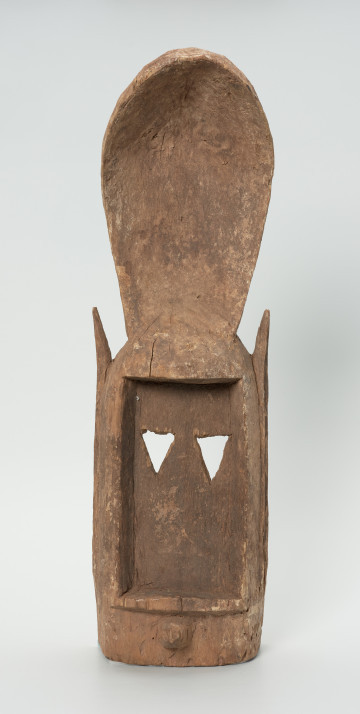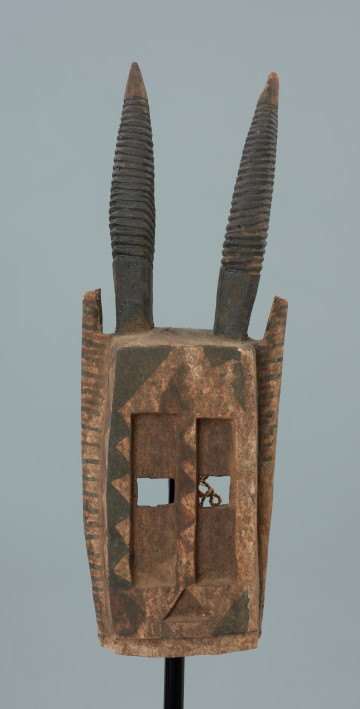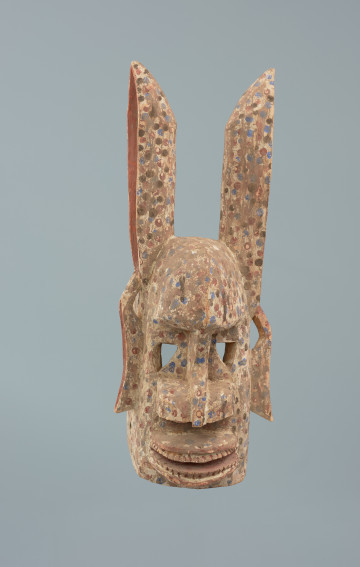
Gomintogo mask
między 1991 — 2000
National Museum in Szczecin
Part of the collection: Collection of Dogonian art
The gomintogo mask represents the head of an animal of the deer family. The characteristic feature that allows the mask to be identified is the spreading antlers (shovel). Like other Dogon masks, it is danced during the Dama funeral rituals ending the long period of mourning for the deceased. The myth explaining the creation of the gomintogo mask tells the story of a man who fell ill and sought the help of a fortune-teller. The fortune-teller concluded that nyama, a kind of soul, the life force of gomintogo who had been killed by the man's late father, was responsible for the illness. Following the fortune-teller's advice, the animal’s head was first drawn on a rock wall and then carved in wood. The wooden mask was then placed on the head of the sick man. Thus disguised, he went to the terrace of his father's house and began to recreate the story preceding the animal's death. He imitated the scene in which his father was cultivating millet, gathering it on a rocky shelf, and then he played the role of an animal running into the field and eating and destroying the crop with its hooves. Thereby, the soul of gomintogo followed the soul of its killer and stopped taking revenge on the living. The mask is worn on the face and only forms a whole with the costume made of dyed plant fibres. The dancer, always a male member of the Awa society, holds a stick in his hand, which he strikes three times on the ground, first from the right, then from the left, then he crouches down and lowers his head on his chest. From time to time, he plays the movement of plucking grain and grass. The mimicry is a reminder that the animal has trampled and devoured the crops of the farmer who killed it in revenge for the damage.
Ewa Prądzyńska
Author / creator
Dimensions
cały obiekt: height: 74 cm, width: 23,5 cm
Object type
sculpture, mask
Creation time / dating
Creation / finding place
Identification number
Location / status

między 1991 — 2000
National Museum in Szczecin

między 1976 — 2000
National Museum in Szczecin

między 1951 — 2000
National Museum in Szczecin
DISCOVER this TOPIC
National Museum in Szczecin
DISCOVER this PATH
Educational path